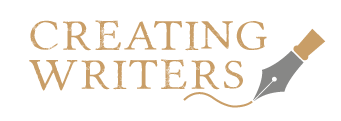Charlie Laidlaw is an author and creative writing tutor at Creating Writers
To write a book, you first need an idea for what it will be about.
But don’t worry if it’s just that – an idea. If you think it’s a good idea, start to think through how it might work.
My first book took years to write, and not just because I had a demanding job and young family.
I hadn’t thought through the overall storyline or my main characters. I was forever changing things and rewriting large parts of it.
After that book was published, I changed my mindset. I now write the first chapter and the last chapter. I have a starting point and a finishing line. What I then do is figure out how to join the two!
But it’s an easier process than it sounds because once your brain is wired into the story, more and more ideas flow.
Chapters
A good idea, once you’ve decided on your story, is to summarise what each chapter is going to be about. Maybe on pieces of paper that you can shuffle around. Some writers use post-it notes.
In other words, rather than just fly by the seat of your pants, write down how each chapter will move the story forward. For example:
Chapter 1: A man on a business trip goes into a pub, and meets a beautiful barmaid. She gives him her phone number.
Chapter 2: After he gets home, he phones her. The person who answers is not her and seems upset by his call.
Chapter 3: He goes back to the pub to try and find her. But the pub is now a block of flats. The pub burned down five years beforehand. A young female employee died in the fire.
And so on and so on. By sketching out the outline of your book you are giving yourself a framework. When that framework is complete you can then begin to fill in sub-plots and character.
Have fun
Using the kind of example above, why not get together with a few close friends or family members? People who you can trust and who like a laugh.
Make it a convivial evening. Tell them that they’re to come up with ideas for the next chapter, and the next chapter. Have fun doing it.
You’ll be surprised, using everyone’s imagination, how quickly ideas will bounce around. Their reward for this? To be mentioned in your book’s acknowledgements.
In other words, flesh things out bit by bit. Some authors can just write with no clear idea where the story will end up, but most of us can’t.
I would always advise careful planning. Okay, your book might move in unexpected directions. Characters might take on unexpected dimensions.
That may mean changing your plan. That’s also okay, because writing a book is a creative and dynamic process and change is only to be expected.
But don’t make the mistake I did when I wrote my first book. Make sure that you know how your story will unfold and, at least roughly, how it will end.
Confidence & skills
However, a novel involves many different elements, and not just characterisation, story, narrative and dialogue.
If you’d like to learn the tools of the trade, why not speak to us.
Creating Writers has two creative writing courses, an introductory course and our flagship Diploma course – with a real qualification at the end of it.
They’re intended to give you the confidence and skills to understand what makes great writing.
The fact is that nobody is born a doctor or plumber. These are people with skills that have to be learned.
So it is with creative writing, and we can give you the confidence and skills to pursue that writing dream.
For more information, you can contact us here.
Photo by Dariusz Sankowski on Unsplash

